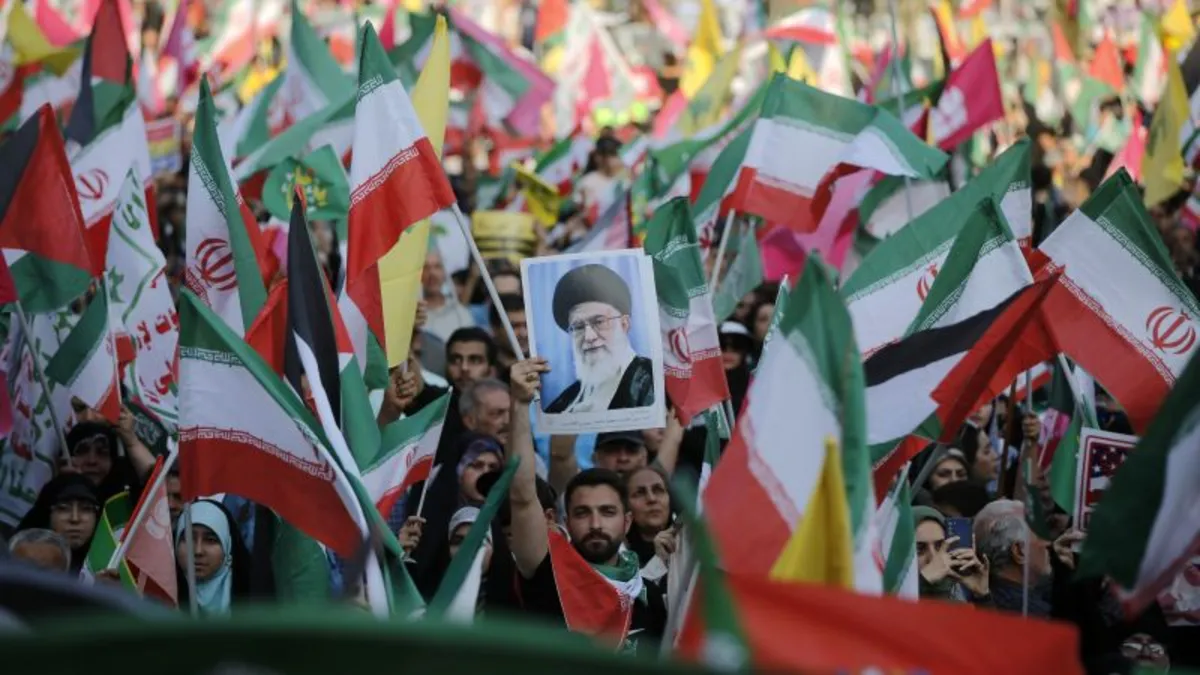
Since Israel initiated its concerted attack on Iran last Friday, the discourse surrounding regime change in Iran has amplified significantly. Voices ranging from hawkish members of the United States Congress to Israeli officials and some Iranian activists abroad are advocating for the overthrow of the Islamic Republic. They argue that the current regime is considerably weakened, presenting an opportune moment to leverage domestic unrest and public discontent against the ruling clerical establishment, led by Supreme Leader Ayatollah Ali Khamenei.
Israeli Prime Minister Benjamin Netanyahu conveyed his perspective during a Fox News interview, suggesting that Israel’s military operations “could certainly” lead to regime change in Iran, asserting that the Iranian government is “very weak.” He went on to claim, “80% of the people would throw these theological thugs out,” referencing the regime’s harsh treatment of citizens. He criticized the Iranian authorities for their oppressive measures, stating, “They shoot women because their hair is uncovered. They shoot students. They just suck the oxygen out from these brave and gifted people, the Iranian people.” Netanyahu emphasized that the decision to act against the regime lies with the Iranian people themselves.
Despite Netanyahu's assertions, experts caution that his interpretation of Iranian public sentiment may be misguided. They suggest that the Israeli attacks are more likely to incite public anger towards Israel rather than encourage an uprising against the Iranian regime. As Iranians seek shelter from bombings, domestic issues are temporarily overshadowed. Arash Azizi, an expert on Iran, remarked, “Iranian activists know that their value has little to do with people like Netanyahu,” emphasizing that the Israeli Prime Minister’s government does not resonate with their values.
In recent years, Iran has witnessed widespread protests against its government, particularly following the death of Mahsa Amini, a 22-year-old woman who died in the custody of Iran's morality police. However, many activists have been detained, and the regime has intensified efforts to suppress dissent, leading to increased fear among the populace. While discontent is prevalent, experts agree that most Iranians do not view Netanyahu or his government as viable solutions to their domestic struggles.
Many Iranians, speaking anonymously for safety reasons, expressed that although some view the current conflict as a potential opportunity for regime change, they prefer to shape their future independently. A local Iranian journalist noted that the perception among the populace is that the regime remains strong, and any protests during wartime would likely invite severe retaliation. “Those who are terrified under missiles and explosions, trying to protect their children and loved ones, do not have the psychological or practical capacity to ‘take to the streets,’” the journalist conveyed, highlighting the dire situation faced by many Iranians.
Interestingly, some experts argue that during a national crisis, people tend to favor unity, regardless of their dissatisfaction with the regime. Azizi pointed out that there is no support for Netanyahu's military actions among the Iranian populace. “If anything, they are organizing now to help each other defend their country,” he stated, indicating a strong sentiment against foreign intervention.
In the diaspora, where many anti-regime Iranians reside, there is also significant outrage directed at Israel's actions. Prominent human rights activist Narges Mohammadi, a 2023 Nobel Peace Prize winner, emphasized the need for unity against war, stating, “Iranian Civil Society Says No to War!” She, along with fellow activists, called for an end to the conflict while also urging for a halt to uranium enrichment and a change in the regime.
As Israel continues its military operations, which have reportedly resulted in the deaths of over 224 individuals, Iranian President Masoud Pezeshkian called for national unity against the aggression. He emphasized that the Iranian people are not the aggressors and defended Iran’s right to pursue a peaceful nuclear program.
Even if there were to be a change in leadership due to the ongoing conflict, experts warn that it may not align with Netanyahu's vision. Mohammad Ali Shabani, an editor at Amwaj, pointed out that while regime change is a possibility, it could lead to a military-led administration potentially armed with nuclear weapons. Furthermore, the Israeli government's calls for regime change have raised alarms among regional leaders. Anwar Gargash, diplomatic adviser to the president of the UAE, cautioned that reshaping the region through force could intensify nationalism and lead to further complications.
Many Iranians remain skeptical about the prospect of Israeli interventions leading to positive outcomes for their country. One journalist lamented, “Netanyahu has attacked us, and now he expects us to overthrow Khamenei while we’re standing in lines for bread and fuel?” This sentiment reflects a widespread concern that foreign military aggression complicates the already challenging path toward domestic reform.